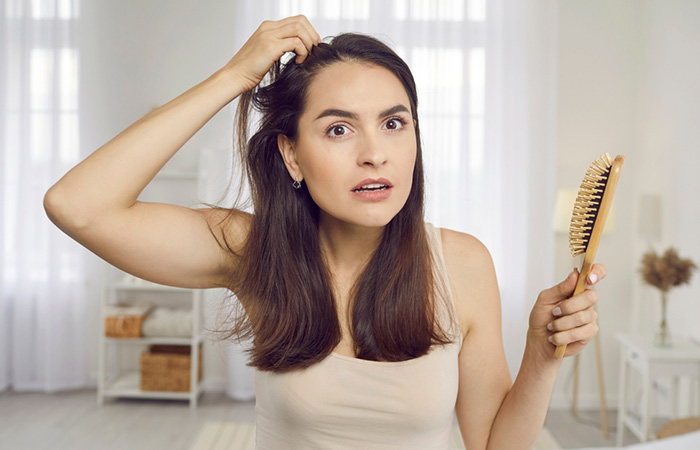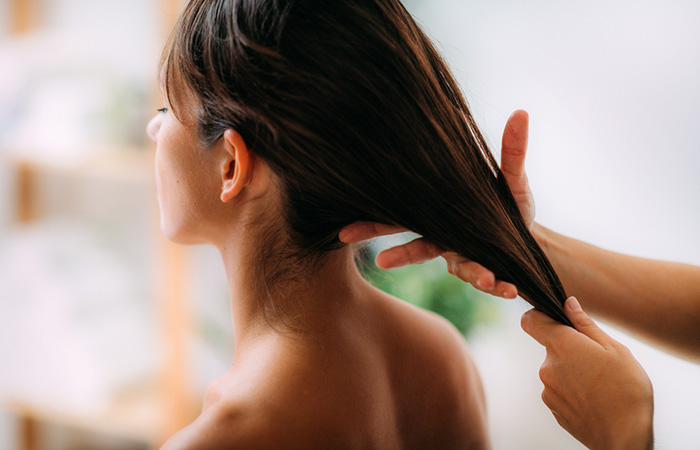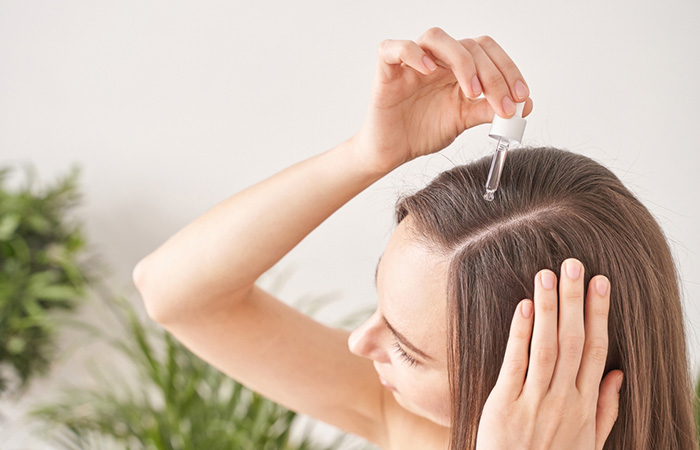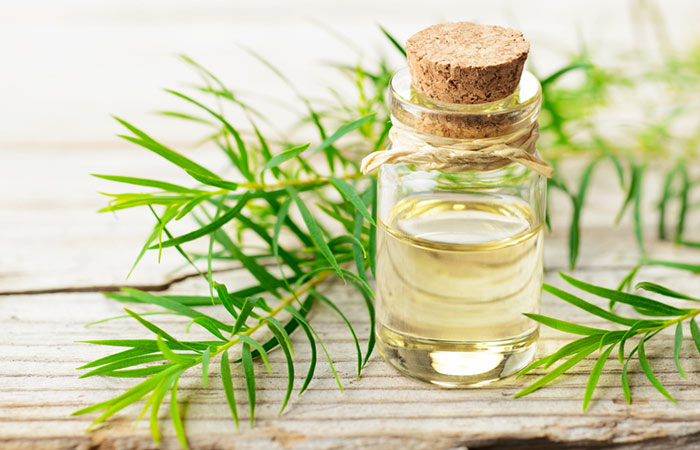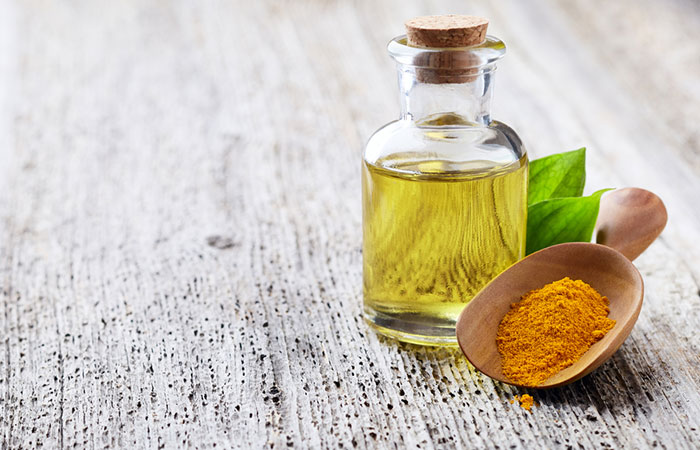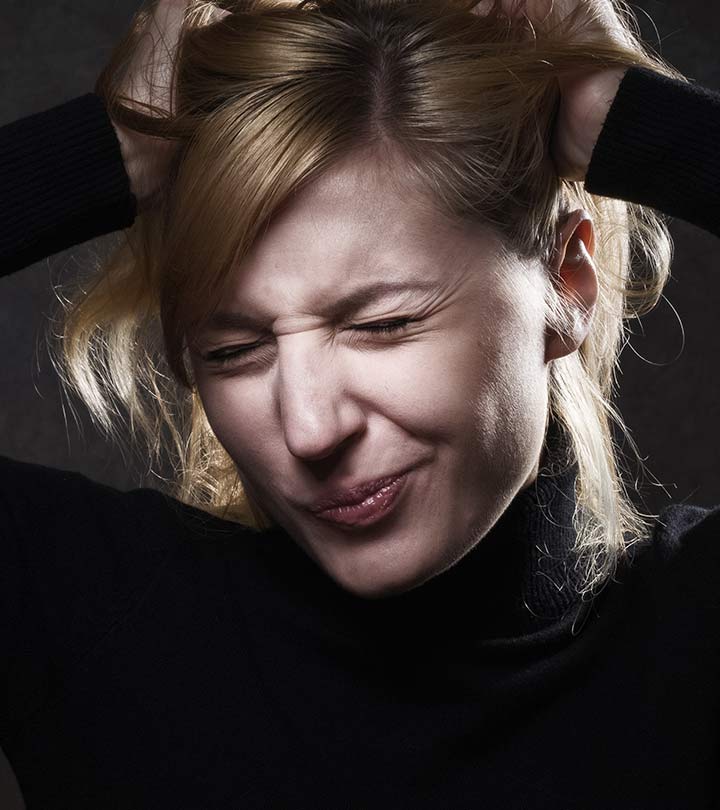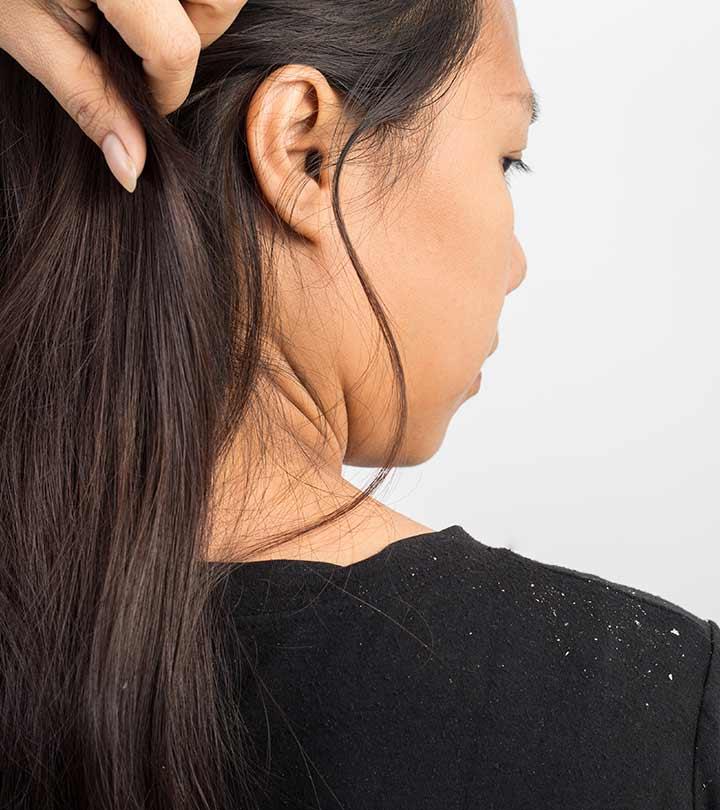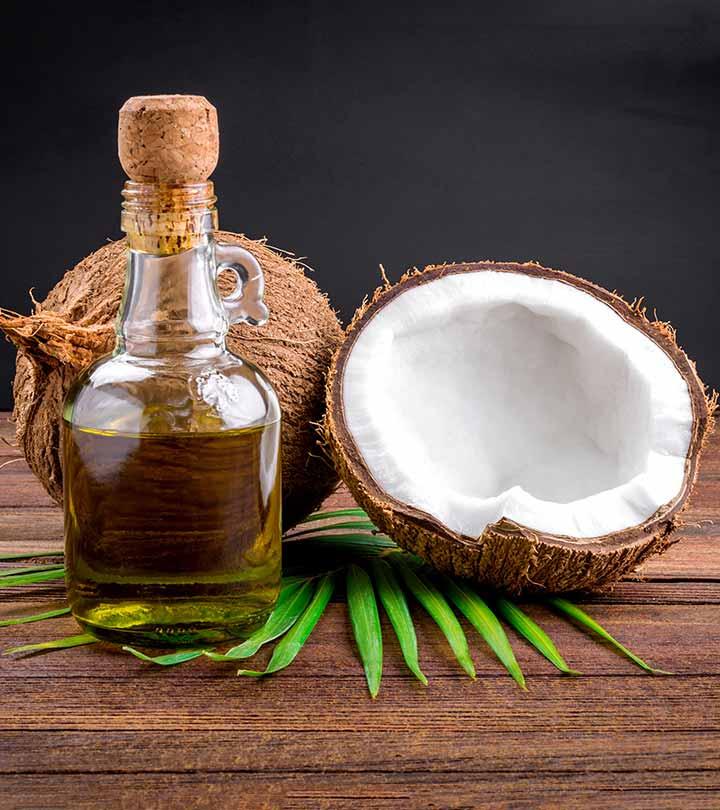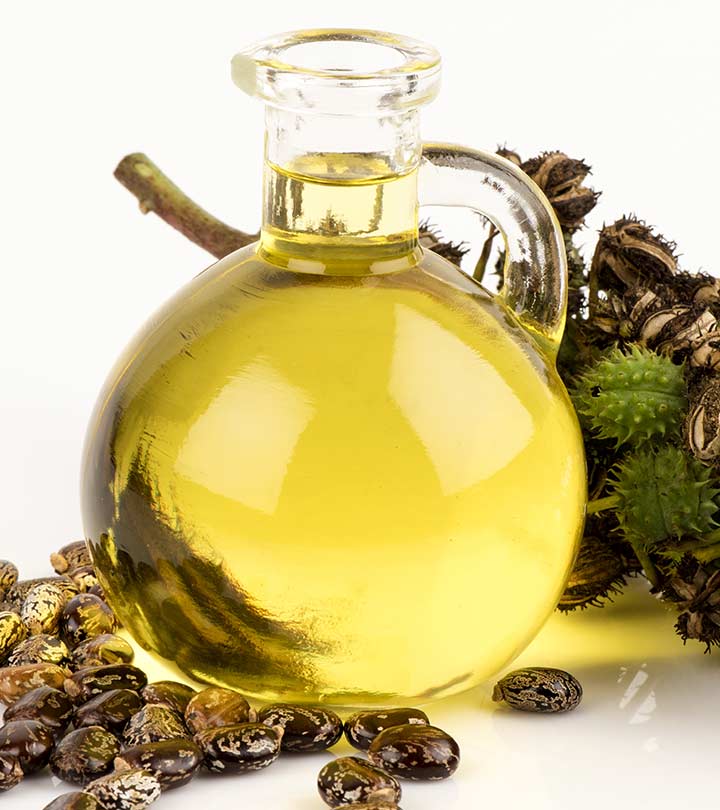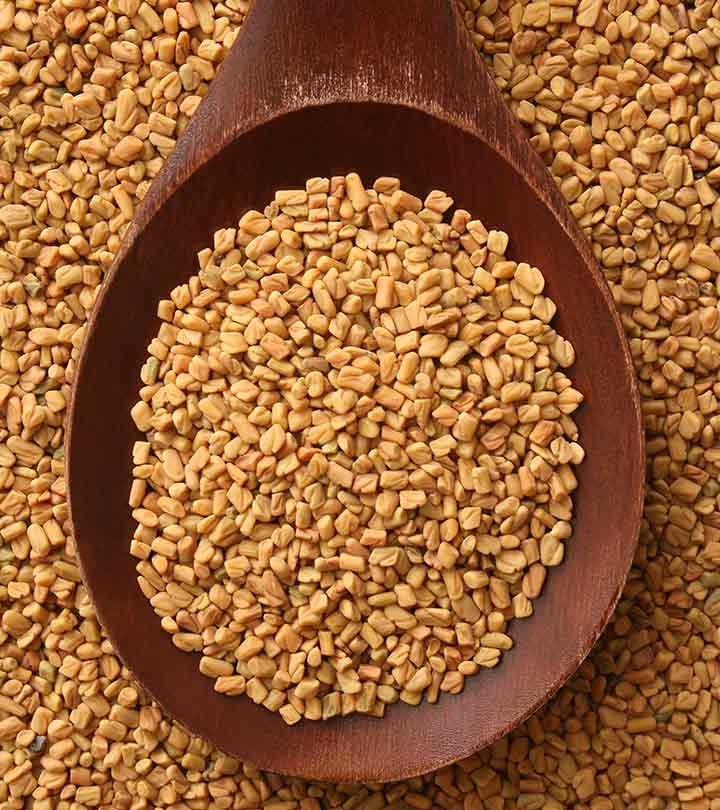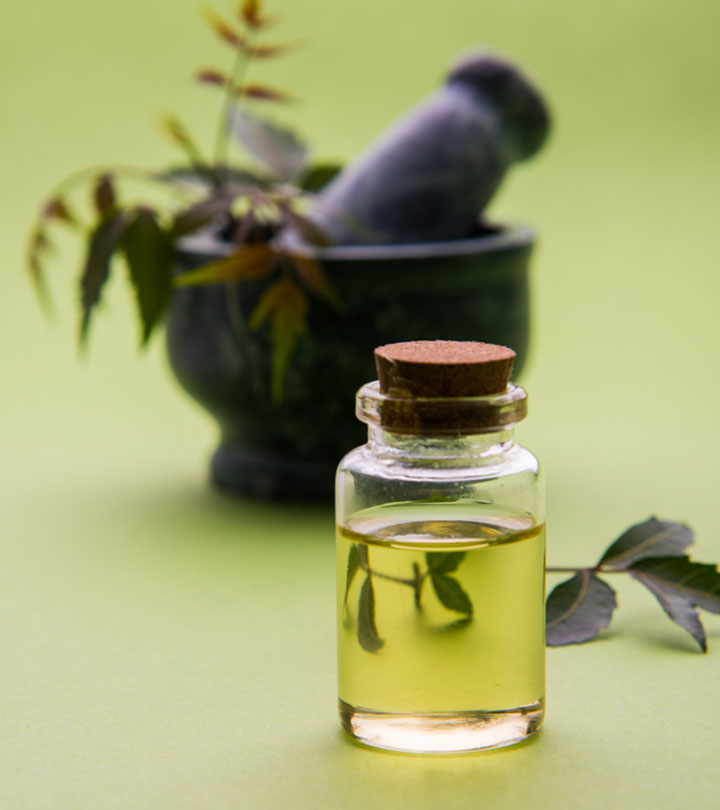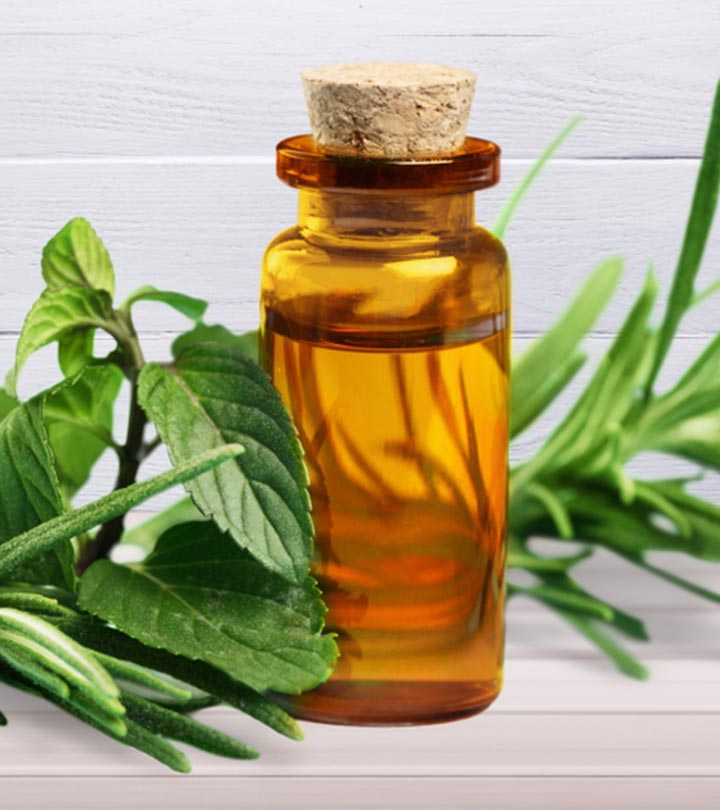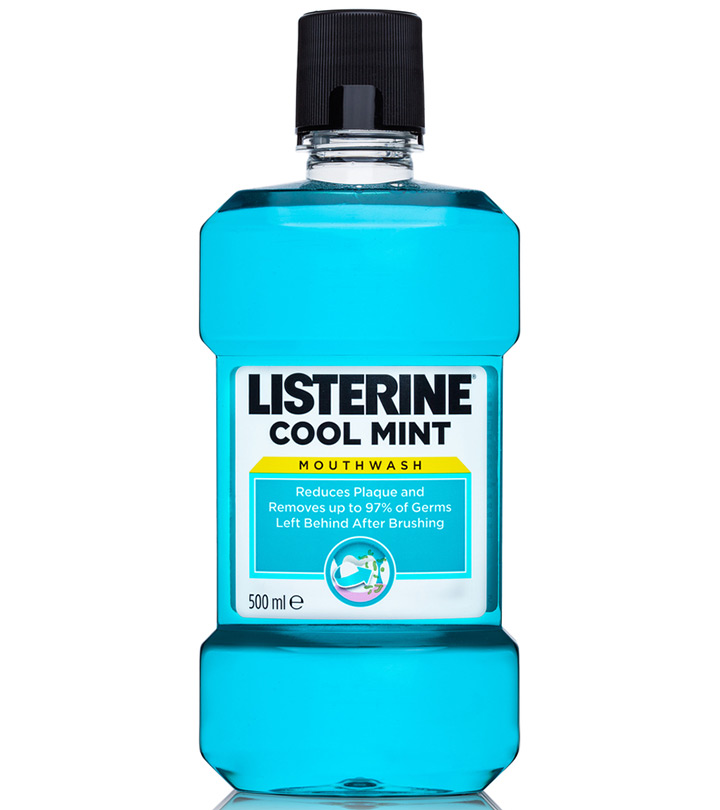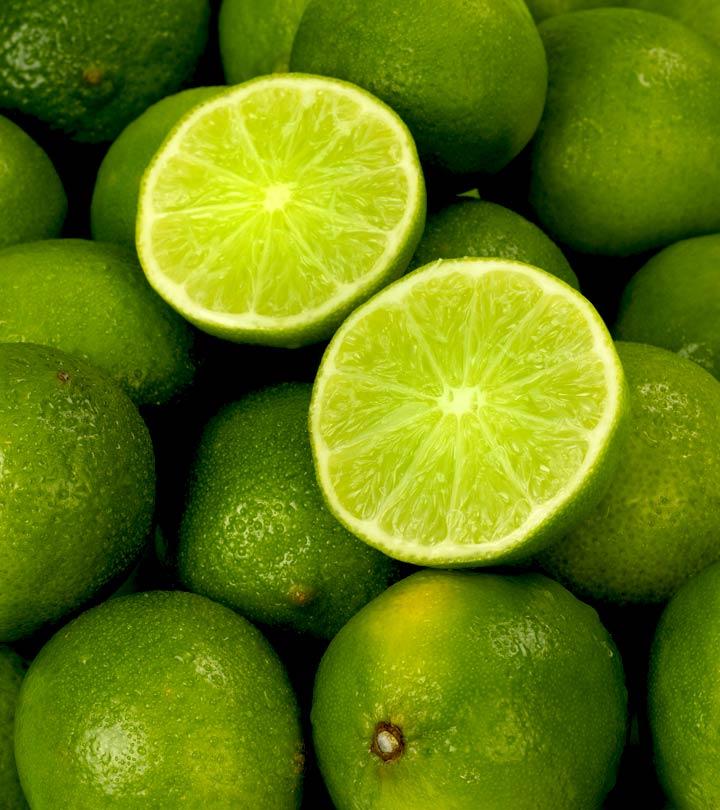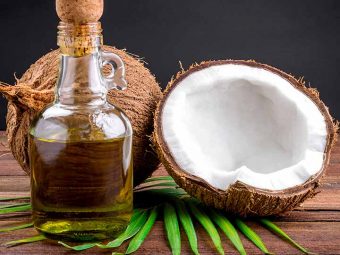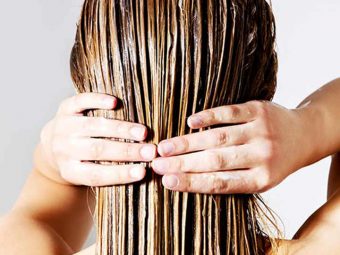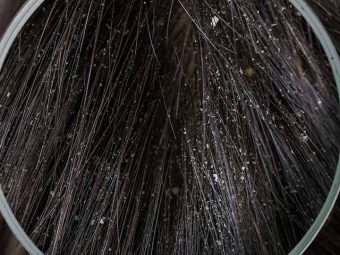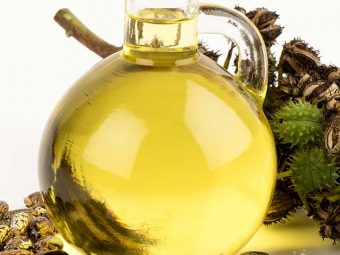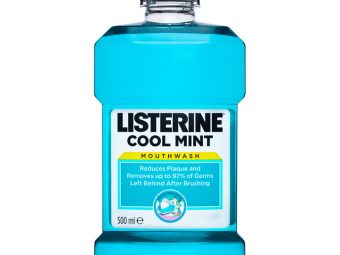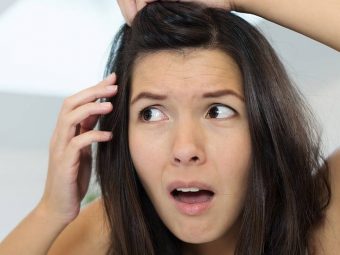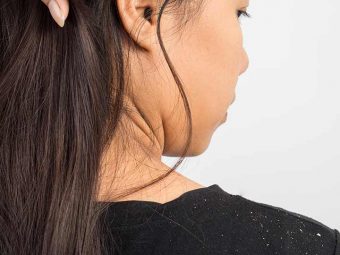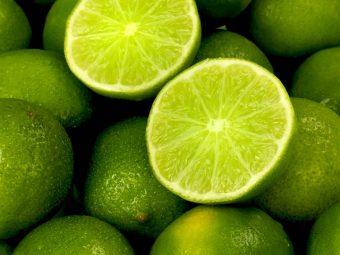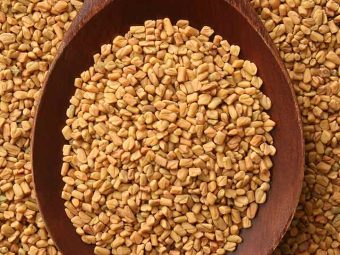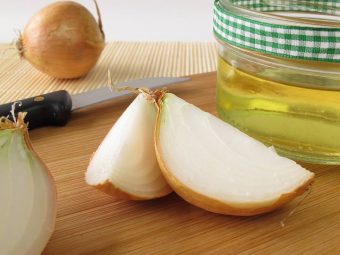How To Use Olive Oil To Treat Dandruff
Learn to use this nourishing plant-oil and get rid of the pesky problem once and for all.
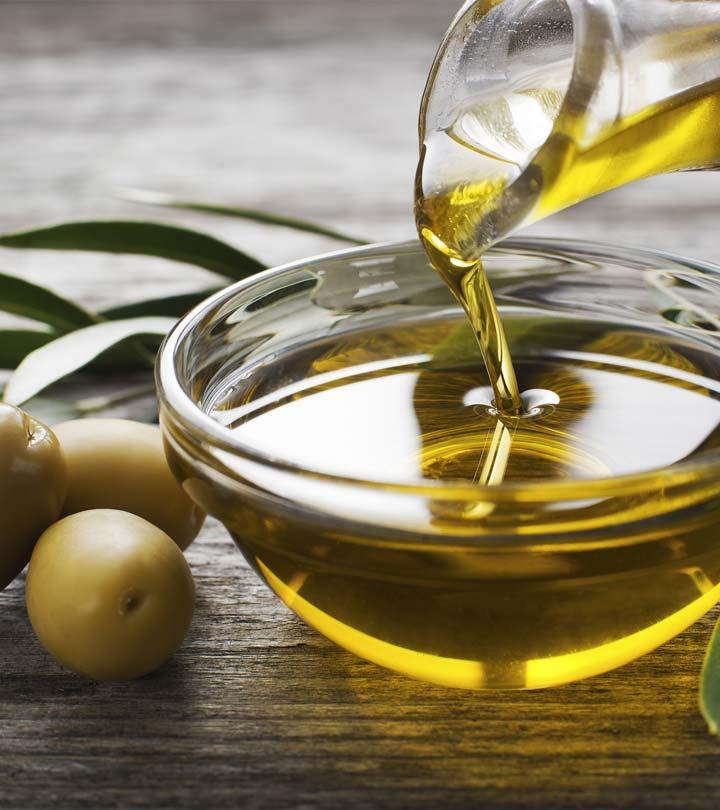
Image: shutter stock
Olive oil is considered the greatest natural remedy for maintaining hair health. This oil is nutritious and filled with antioxidantsi XThey are the molecules that help fight free radicals in the body formed during the oxidation process and thus prevent cell damage. , plus it can work wonders as hair oil. But, can you use olive oil to treat dandruff? Olive oil can certainly help with dandruff, but that is not the only advantage of applying it to your hair. This excellent ingredient may be used to treat various hair issues, and you will see a difference as soon as you apply it. Continue reading to understand the ways olive oil can help with dandruff and how to incorporate it into your hair care regimen.
In This Article
Is Olive Oil Effective Against Dandruff?
Yes! Olive oil is one of the best ingredients you could use to treat dandruff. The oil is effective and efficient to the point where you start noticing the improvement from the first use. Following, I’ve put together the benefits of olive oil for hair.
1. Fights Dandruff
Olive oil is one of the best natural conditioners that you can find for your hair (1). Unlike regular store-bought conditioners, which only clog and irritate your scalp, olive oil will help moisturize a dry scalp and will soothe flaking.
2. Unclogs Follicles
Olive oil has antioxidant and antibacterial properties, which make it a good hair cleanser (2), (3). Cleansers are used to remove the build-up that is clogging the hair follicles. Another study showed that olive oil penetrates through hair fibers and protects the hair from within (4). Clogged follicles (from the dirt and grime) can lead to scalp irritation and dandruff (5). Olive oil is light and helps dissolve all the dirt, excess oils, and grime that are present on your scalp. This helps unclog the follicles as well as nourish them so that hair can grow without a hitch, minimizing scalp irritation.
3. Prevents Damage
Olive oil helps reduce hair damage and trichoptilosis, or split ends (1). Regular use of olive oil can help boost scalp and hair health by preventing damage. This is owed to olive oil’s rich antioxidant properties that help minimize oxidative damage (2).
4. Conditions Hair
Olive oil can also be used as a hair conditioner as it penetrates the hair fiber (1), (2). The oil contains mono-unsaturated fatsi XThese are the healthy fats that help lower cholesterol levels in the body. They are found in nuts, avocados, and vegetable oils. that nourish your hair (6). Thus, it may leave your hair feeling silky, soft, and frizz-free.
Now that you know how beneficial olive oil is for your hair, check out how you can use it to treat dandruff.
How To Use Olive Oil For Dandruff Treatment
- Egg And Olive Oil Hair Mask For Dandruff
Egg whites contain enzymesi XProteins in the body that help increase metabolism by accelerating chemical reactions. It helps digestion, breathing, and healing. that kill bacteria and prevent infection (7). This helps keep your scalp healthy while warding off dandruff. Eggs also help nourish your hair with their high protein content (8).
You Will Need
- 1 egg white
- 2 tablespoons olive oil
- Shower cap
Prep Time
5 minutes
Processing Time
20 minutes
Process
- In a bowl, beat the white of one egg with two tablespoons of olive oil. Ensure that the egg is cold to contain the smell.
- Apply this mixture onto your scalp and then work it down to the tips of your hair.
- Once your scalp and hair are covered in the mixture, cover your hair with a shower cap to avoid a mess.
- Wait for about 20 minutes.
- After 20 minutes have passed, wash your hair with cool water and a mild sulfate-free shampoo. Avoid using warm or hot water as it might ‘cook’ the egg.
- Finish with conditioner. Ensure that you apply the conditioner from the mid-lengths of your hair without touching your scalp.
How Often?
1-2 times a week.
 Quick Tip
Quick Tip2. Olive Oil And Almond Oil For Dandruff
Almond oil has anti-inflammatory properties (9). Therefore, it may help soothe scalp irritation, combat dandruff and calm skin inflammation. In combination with olive oil, it also helps soften the flakes and dissolve excess sebum and dirt, thus unclogging your hair follicles.
You Will Need
- 1 tablespoon olive oil
- 1 tablespoon almond oil
Prep Time
2 minutes
Processing Time
45 minutes – Overnight
Process
- In a bowl, mix the almond and olive oils until you get a smooth mixture.
- Start massaging this mixture into your scalp and then work it down to the tips of your hair.
- Once your scalp and hair are covered, massage your scalp for about 10-15 minutes.
- Leave the oil on for an additional 30 minutes. Optionally, you can leave it overnight.
- Wash your hair with a mild sulfate-free shampoo.
- Finish with a conditioner. Ensure that you apply the conditioner from the mid-lengths of your hair without touching your scalp.
How Often?
2-3 times a week.
3. Olive Oil And Lemon For Dandruff
Lemon juice is rich in citric acid, vitamin C, and antioxidants (10). Anecdotal evidence suggests that it may help fight dandruff and boost scalp health. The acidic nature of lemon juice can also help balance your scalp’s pH and leave your scalp feeling fresh and free of build-up.
Be sure to properly rinse the lemon juice from your scalp. Failure to do so can lead to permanent hair loss.
Caution: Do not sit under the sun after applying this hair mask because lemon juice can bleach your hair when exposed to sunlight.
You Will Need
- 1 teaspoon lemon juice
- 2 tablespoons olive oil
Prep Time
2 minutes
Processing Time
1 hour
Process
- In a bowl, combine the olive oil and lemon juice.
- Massage this mixture into your scalp and then work it down to the tips of your hair.
- Once your hair and scalp are both covered, continue massaging for about 10-15 minutes.
- Leave the lemon-oil mixture on for an additional 30-45 minutes.
- Wash your hair with a mild sulfate-free shampoo.
- Finish with conditioner. Ensure that you apply the conditioner from the mid-lengths of your hair without touching your scalp.
How Often?
2-3 times a week.
4. Olive Oil And Tea Tree Oil For Dandruff
Tea tree oil has antifungal and antibacterial properties (11), (12). It has also been found to be effective in the treatment of dandruff and the scalp irritation and greasiness associated with it (11).
You Will Need
- 2 tablespoons olive oil
- 10 drops of tea tree oil
Prep Time
2 minutes
Processing Time
45 minutes
Process
- In a bowl, add 10 drops of tea tree oil to 2 tablespoons of olive oil. Mix well.
- Start massaging this mixture into your scalp and then work it down to the tips of your hair.
- Once your scalp and hair are covered, massage your scalp for about 10-15 minutes.
- Leave the oil on for an additional 30 minutes. Optionally, you can leave it in overnight.
- Wash your hair with a mild sulfate-free shampoo.
- Finish with a conditioner. Ensure that you apply the conditioner from the mid-lengths of your hair without touching your scalp.
How Often?
2-3 times a week.
 Trivia
Trivia5. Olive Oil And White Vinegar For Dandruff
White vinegar contains acetic acid that helps fight off fungal infections (13). Therefore, it may help fight off the dandruff-causing fungus Malassezia and relieve itching.
You Will Need
- 1 teaspoon olive oil
- 2 teaspoon white vinegar
- 1 tablespoon water
Prep Time
2 minutes
Processing Time
10 minutes
Process
- In a bowl, mix all the ingredients until they are well-combined.
- Start applying the mixture onto your scalp in sections.
- Once your scalp is completely covered in the mixture, massage for about 5 minutes.
- Leave the mixture on for an additional 5 minutes.
- Wash your hair with a mild sulfate-free shampoo.
- Finish with conditioner. Ensure that you apply the conditioner from the mid-lengths of your hair without touching your scalp.
How Often?
1-2 times a week until the problem subsides.
6. Olive Oil And Turmeric For Dandruff
Turmeric is a powerhouse of antioxidants (14). Hence, it may help fight and prevent scalp and hair damage. It also has strong antiseptic and anti-inflammatory properties that can help soothe your scalp and fight infection (14).
You Will Need
- 1 teaspoon turmeric powder
- 2 tablespoon olive oil
- Shower cap
Prep Time
2 minutes
Processing Time
45 minutes
Process
- In a bowl, mix the turmeric and olive oil until they are well combined.
- Start applying this mixture onto your scalp and then work it down to the tips of your hair.
- After your hair and scalp are covered in the oil-turmeric mixture, massage your scalp for about 10-15 minutes.
- Leave the mixture on for an additional 30 minutes.
- Wash your hair with a mild sulfate-free shampoo.
- Finish with conditioner. Ensure that you apply the conditioner from the mid-lengths of your hair without touching your scalp.
How Often?
2-3 times a week.
Infographic: 5 Ways To Use Olive Oil To Tackle Dandruff
Dandruff is one of the most common hair issues that the majority of the population experiences. While it doesn’t carry any harmful effects, it sure has its drawbacks, from causing an embarrassment to ruining your favorite black top with white flakes. But worry not – as we have your back. We have listed in the following infographic 5 easy home remedies to tackle dandruff. Take a look.

Illustration: StyleCraze Design Team
Save the high-quality PDF version on your device now.
Download Infographic
Dandruff is caused by a combination of factors, including dry scalp, yeast overgrowth, poor hair care routines, and allergy to hair care products. It’s a common occurrence and may irritate the scalp. However, using olive oil is one of the simplest natural ways to get rid of dandruff and tackle dryness. When combined with other natural components, it can help battle dandruff and clean your scalp. You can follow the tips discussed in the article to use olive oil to treat dandruff and improve the health of your scalp in no time.
Frequently Asked Questions
Is it safe to put olive oil on your scalp?
Yes, it is generally considered safe to massage olive oil on your scalp. It has hydrating and anti-oxidant properties that moisturize and soothe the scalp (1), (15).
Which is better for dandruff: coconut or olive oil?
While both coconut and olive oils are beneficial, olive oil may be better. Olive oil has a higher amount of vitamin E than coconut oil which is essential in improving hair health (16), (17), (18). Olive oil, in combination with other ingredients, can keep your scalp hydrated and may help fight dandruff (1).
What are the disadvantages of olive oil on hair?
Olive oil can make your hair more greasy and difficult to style. This can be especially problematic for people with straight and silky hair. It can also contribute to acne and blackheads if the hair is long enough to touch the skin.
Is extra virgin olive oil good for the scalp?
Yes, extra virgin olive oil has antioxidants and vitamins that improve scalp health. It protects and nourishes your scalp, preventing dryness and flaking.
Why does my scalp itch after applying olive oil?
Olive oil can feel too heavy for certain hair types and not rinsing it out thoroughly can result in an oil build-up on your scalp. This buildup may cause irritation and itching. Moreover, it can worsen existing scalp conditions, like seborrheic dermatitis. .
Does olive oil help with scalp inflammation?
Yes, olive oil has anti-inflammatory properties that can soothe and calm scalp irritation and reduce inflammation.
Is it safe to use olive oil on colored or chemically-treated hair to treat dandruff?
Yes, olive oil is a natural and safe option to treat dandruff on colored or chemically treated hair. It can hydrate and soothe the scalp and reduce dandruff due to its antioxidant properties. However, use it wisely and avoid applying it directly to the scalp, especially if you have an oily scalp or are prone to buildup.
Can olive oil cause any scalp irritation or allergic reactions?
Yes, though using olive oil on your scalp is generally safe, it can cause irritation or allergic reactions for some individuals. It is important to look out for symptoms such as redness, swelling, hives, and eczema. Moreover, applying olive oil directly to the scalp can exacerbate existing scalp conditions including seborrheic dermatitis that can lead to itching and flaking.
Key Takeaways
- Olive oil can hydrate and moisturize the scalp and lower the likelihood of developing dandruff.
- Mix olive oil with lemon juice or honey to make a hair mask and massage the mixture on your scalp as a pre-shampoo treatment. It works wonders for your hair and scalp.
- Apart from dandruff, Olive oil also protects your scalp against various fungal and bacterial infections of the scalp.
Dealing with stubborn dandruff? Watch the video below to discover how to use the nourishing olive oil to boost your scalp health and find a solution for your dandruff woes!
Sources
- Ethnopharmacological survey of home remedies used for treatment of hair and scalp and their methods of preparation in the West Bank-Palestine, BMC Complementary And Alternative Medicine, US National Library Of Medicine.
https://www.ncbi.nlm.nih.gov/pmc/articles/PMC5499037/ - Virgin Olive oil As A Fundamental Nutritional Component And Skin Protector, Clinical Dermatology, US National Library Of Medicine.
https://www.ncbi.nlm.nih.gov/pubmed/19167997 - Novel Antibacterial And Emollient Effects Of Coconut Oil And Virgin Olive Oils In Adult Atopic Dermatitis, Dermatitis: Contact, Occupational, Drug, US National Library Of Medicine.
https://www.ncbi.nlm.nih.gov/pubmed/19134433 - Investigation Of Penetration Abilities Of Various Oils Into The Hair Fiber, Journal Of Cosmetic Science, US National Library Of Medicine.
https://www.ncbi.nlm.nih.gov/pubmed/16258695 - Dandruff: The Most Commercially Exploited Skin Disease, Indian Journal Of Dermatology, US National Library Of Medicine.
https://www.ncbi.nlm.nih.gov/pmc/articles/PMC2887514/ - Potential Health Benefits of Olive Oil and Plant Polyphenols, International Journal Of Molecular Science, US National Library Of Medicine.
https://www.ncbi.nlm.nih.gov/pmc/articles/PMC5877547/ - Biology Of Eggs, Food Safety and Inspection Service, US Department of Agriculture.
https://www.fsis.usda.gov/wps/wcm/connect/1f13a3dd-8931-4d5a-af1b-597917db353e/03-Biology-Eggs.pdf?MOD=AJPERES - Nutritive value of Eggs, Grade A, Large, egg white, FoodData Central, US Department of Agriculture.
https://fdc.nal.usda.gov/fdc-app.html#/food-details/747997/nutrients - The uses and properties of almond oil, Complementary Therapies In Clinical Practices, US National Library Of Medicine.
https://www.ncbi.nlm.nih.gov/pubmed/20129403 - Nutritive value of Lemon juice from concentrate, bottled, REAL LEMON, FoodData Central, US Department of Agriculture.
https://fdc.nal.usda.gov/fdc-app.html#/food-details/167802/nutrients - Treatment of dandruff with 5% tea tree oil shampoo, Journal Of American Academy Of Dermatology, US National Library Of Medicine.
https://www.ncbi.nlm.nih.gov/pubmed/12451368 - In Vitro Evaluation of Antioxidant and Antimicrobial Activities of Melaleuca alternifolia Essential Oil, BioMed ResearchInternational, US National Library Of Medicine.
https://www.ncbi.nlm.nih.gov/pmc/articles/PMC5960548/ - Vinegar: Medicinal Uses and Antiglycemic Effect, Medscape General Medicine, US National Library Of Medicine.
https://www.ncbi.nlm.nih.gov/pmc/articles/PMC1785201/
- Chapter 13: Turmeric The Golden Spice, Herbal Medicine: Biomolecular And Clinical Aspects, US National Library Of Medicine.
https://www.ncbi.nlm.nih.gov/books/NBK92752/ - Development and efficacy evaluation of hair care formulations containing vegetable oils and silicone
https://www.researchgate.net/publication/332582347_Development_and_efficacy_evaluation_of_hair_care_formulations_containing_vegetable_oils_and_silicone - Olive Oil
https://fdc.nal.usda.gov/fdc-app.html#/food-details/1103861/nutrients - Oil, coconut
https://fdc.nal.usda.gov/fdc-app.html#/food-details/171412/nutrients - Development and Evaluation of Herbal Hair Serum: A traditional way to Improve Hair Quality
https://www.ijsrp.org/research-paper-0318/ijsrp-p7545.pdf



